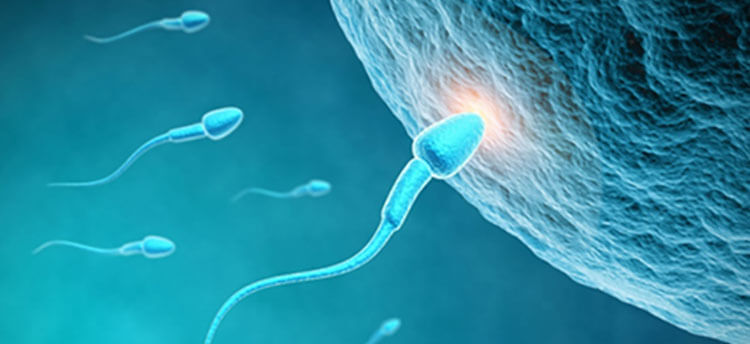How to Improve Male Fertility Naturally

Male fertility is an essential aspect of reproductive health, yet it is often overlooked until couples face trials and tribulations in conceiving. Various factors, including lifestyle choices, environmental influences, and underlying health conditions, can whack male fertility. Fortunately, there are several natural ways to increase male fertility, improve sperm quality, and increase the chances of conception. This article dives into effectual strategies and lifestyle changes to naturally boost male fertility.
Understanding Male Fertility
Male fertility largely depends on the quantity and quality of sperm. Key factors include:
- Sperm Count: The number of sperm present in a given volume of semen. A healthy sperm count is typically over 15 million sperm per milliliter of semen.
- Sperm Motility: The ability of sperm to swim effectively. Good motility is necessary for sperm to navigate through the female reproductive tract to reach the egg.
- Sperm Morphology: The size and shape of sperm. Normal-shaped sperm are more likely to fertilize an egg.
- Semen Volume: The amount of semen produced during ejaculation. Adequate semen volume is important for transporting sperm to the egg.
Natural Ways to Improve Male Fertility
- Healthy Diet and Nutrition

A balanced diet rich in vitally important nutrients can remarkably improve sperm health and overall fertility. Key dietary recommendations include:
- Antioxidant-rich Foods: Antioxidants such as vitamins C and E, selenium, and zinc protect sperm from oxidative stress, which can damage sperm DNA. Foods like berries, nuts, seeds, citrus fruits, and green leafy vegetables are excellent sources of antioxidants.
- Folic Acid: Folic acid, a type of B vitamin, is crucial for DNA synthesis and sperm production. Leafy greens, beans, and fortified cereals are good sources of folic acid.
- Omega-3 Fatty Acids: Omega-3 fatty acids, found in fatty fish (such as salmon and mackerel), flaxseeds, and walnuts, support sperm motility and morphology.
- Arginine: This amino acid improves sperm motility and increases sperm count. Foods like turkey, chicken, pumpkin seeds, and peanuts are rich in arginine.
- Coenzyme Q10 (CoQ10): CoQ10 supplements have been shown to improve sperm count and motility. Naturally, CoQ10 is found in meats, fish, and whole grains.
- Regular Exercise

Physical activity is advantageous for overall health and can positively impact sperm quality. Regular exercise helps maintain a healthy weight, reduces stress, and enhances hormonal balance. Aim for at least 150 minutes of moderate-intensity exercise per week, such as brisk walking, cycling, or swimming.
- Maintain a Healthy Weight

Obesity is connected to lower sperm quality and reduced fertility. Excess body fat can lead to hormonal imbalances, including lower testosterone levels and increased estrogen levels, which negatively affect sperm production. Maintaining a healthy weight through a balanced diet and regular exercise can improve sperm parameters.
- Avoid Toxins and Harmful Substances

Use of cocaine or marijuana might reduce the number and quality of your sperm as well. Alcohol use. Drinking alcohol can lower testosterone levels and cause decreased sperm production. Exposure to environmental toxins and harmful substances can impair sperm quality. Key substances to avoid include:
- Pesticides and Heavy Metals: Minimize exposure to pesticides, lead, and other heavy metals, which can negatively impact sperm production and function.
- Plastics and Endocrine Disruptors: Chemicals found in plastics, such as bisphenol A (BPA) and phthalates, can disrupt hormonal balance. Opt for glass or stainless steel containers and avoid microwaving food in plastic containers.
- Cigarette Smoke: Smoking reduces sperm count and motility and increases the risk of DNA damage in sperm. Quitting smoking can significantly improve sperm health.
- Excessive Alcohol Consumption: Drinking alcohol in excess can lead to hormonal imbalances and reduce sperm quality. Limit alcohol intake to moderate levels.
- Manage Stress
Chronic stress can negatively impact male fertility by affecting hormone levels and sexual function. Stress management techniques such as meditation, yoga, deep breathing exercises, and regular physical activity can help reduce stress and improve overall well-being.
- Get Adequate Sleep
Quality sleep is essential for maintaining optimal health and hormonal balance. Aim for 7-8 hours of uninterrupted sleep per night to support healthy sperm production.
- Avoid Overheating the Testicles

The testicles need to be slightly cooler than the rest of the body to produce healthy sperm. Avoid activities that raise testicular temperature, such as:
- Hot Baths and Saunas: Limit the use of hot tubs, saunas, and hot baths.
- Tight Clothing: Wear loose-fitting underwear and pants to prevent overheating.
- Laptops on Lap: Avoid placing laptops directly on your lap for prolonged periods.
- Herbal Supplements

Several herbs and natural supplements are known to support male fertility. Always consult a healthcare provider before starting any new supplements. Popular options include:
- Ashwagandha: An adaptogenic herb that helps reduce stress and improve sperm count and motility.
- Tribulus Terrestris: Known to enhance libido and improve sperm quality.
- Maca Root: Traditionally used to boost energy, stamina, and fertility.
- Ginseng: Improves sexual function and sperm quality.
- Limit Exposure to Radiation and Electromagnetic Fields
Overexposure to radiation and electromagnetic fields (EMFs) from electronic devices can negatively affect sperm quality. Limit use and proximity to devices that emit high levels of radiation and EMFs, such as cell phones, by keeping them away from the reproductive area when not in use.
- Regular Medical Check-ups

Regular check-ups with a healthcare provider can help identify and address any underlying health issues that may impact fertility. Conditions such as varicoceles (enlarged veins in the scrotum), hormonal imbalances, and infections can affect sperm production and quality.
Enhancing male fertility naturally involves adopting a healthy lifestyle, maintaining a balanced diet, and making mindful choices to avoid harmful substances and behaviors. By incorporating these strategies, men can enhance their sperm quality, increase the chances of conception, and support overall reproductive health. Regular check-ups and open communication with healthcare providers are essential for addressing any concerns and ensuring optimal fertility health.
